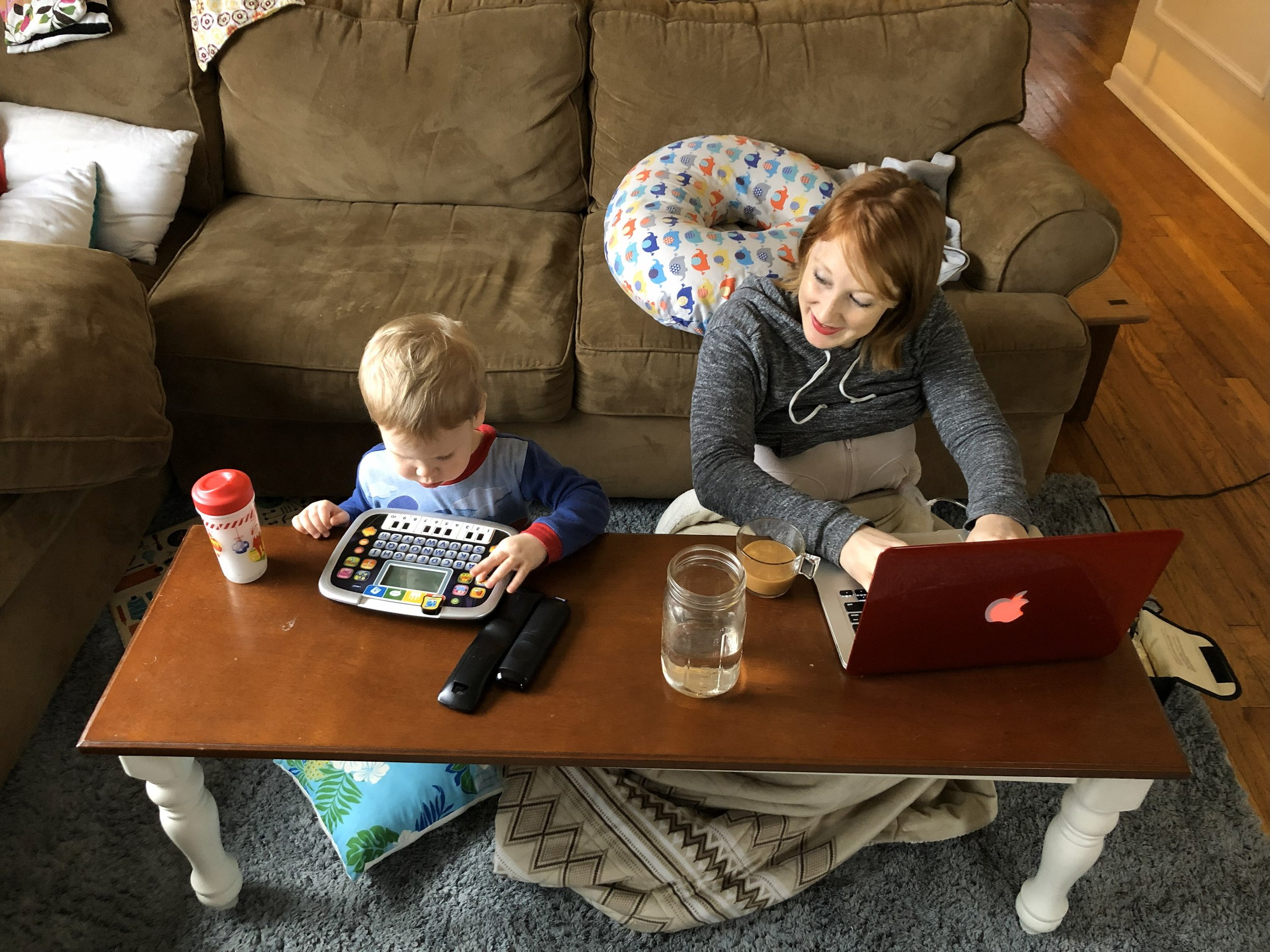How Small Groups Change Parenthood for the Better
You can have all the checklists, podcasts, and parenting books in the world, and still feel completely alone.
Maybe you end your day sitting next to your partner on the couch, both scrolling your phones. You love each other, but something feels off. You can’t remember the last time you finished a sentence without being interrupted by a baby cry, a work ping, or sheer exhaustion.
You tell yourself you should be grateful, you should know how to handle this season, you should be able to figure it out. But that “figure it out alone” approach?
It’s exactly what’s keeping you stuck.
We weren’t meant to do parenthood in isolation.
Before Joining a Group: The Isolation So Many New Parents Feel
Most new parents describe this season the same way: Overwhelming, lonely, and confusing.
You might have moments that feel good—baby smiles, little family adventures, or those rare evenings that go smoothly—but there’s still that undercurrent of disconnection.
You love your partner, but sometimes it feels like you’re speaking different languages.
You love your baby, but you miss the version of yourself that felt confident and grounded.
You crave deeper conversation, but everyone around you seems to be hustling through their own chaos.
If that sounds familiar, you’re not broken. You’re just trying to navigate the most intense identity shift of your adult life… without a village.
What Becomes Possible in a Small Group
Now imagine this:
You log into a call one evening, baby monitor nearby, cup of tea (or glass of wine) in hand. You’re surrounded—virtually—by other parents in the same messy, beautiful, exhausting season.
You hear someone say, “I thought I was the only one.” You nod, because you’ve thought that, too.
By the end of the hour, you feel lighter. You have words for what’s been happening between you and your partner. You know one small thing you can try this week to feel more like a team.
That’s what happens in our Mom Group and Dad Group. It’s not a lecture or a vent session. It’s a space to connect, learn, and practice, together.
Over six weeks, you’ll go from “We’re barely surviving” to “We actually know how to talk about this stuff.” You’ll rebuild confidence, connection, and calm.
It’s not magic. It’s psychology.
Why Groups Work: The Psychology Behind Real Growth
There’s a reason traditional self-help methods—books, podcasts, articles—don’t create lasting change on their own.
They’re informational, not transformational.
Transformation happens when you practice, connect, and reflect with others.
Here’s what the science says:
1. Co-Regulation: Calm Is Contagious
When you’re around other calm, regulated people, your nervous system mirrors that safety.
This is called co-regulation, and it’s the same reason a baby settles when held by a parent.
In a group, adults experience it too—simply being seen and understood lowers cortisol and activates the body’s “social safety system.” That’s why parents in community settings report lower stress and fewer symptoms of postpartum anxiety and depression.
2. Bandura’s Social Learning Theory
Psychologist Albert Bandura found that adults learn best not by being told what to do, but by observing and rehearsing behaviors.
In a group, you watch someone else use a new communication tool, then try it yourself.
That repetition of seeing, trying, and adjusting helps rewire how you handle conflict, ask for help, or express your needs.
You don’t just know better; you do better.
3. Accountability + Self-Determination
Motivation science shows that we’re more likely to follow through when we feel connected, capable, and supported.
A small group gives you both external accountability (“someone’s expecting me”) and internal motivation (“I want to show up for myself and my family”).
That’s how new habits stick.
4. Shared Meaning
When parents process life transitions together (like becoming a mom or dad) it builds resilience and meaning.
You start to see your experience not as “failing,” but as a normal, human part of growth.
And that shift changes everything about how you show up at home.
Why Coaching + Community Beats Going It Alone
Therapy helps you unpack the past.
Coaching helps you act in the present.
Community helps you sustain it.
Our groups blend postpartum coaching with peer connection—so you learn the tools and have people to practice them with.
You’ll learn:
How to recognize stress before it spirals
How to communicate what you need without defensiveness
How to share the mental load more fairly
How to reconnect with your partner, even when life feels chaotic
How to feel grounded in your identity again
When you grow in these areas, your whole family benefits.
And because our groups are virtual, you can join from anywhere. Whether you’re rocking a newborn to sleep in Ohio or sneaking in a call during naptime in California, you’ll be part of a space that reminds you: you’re not the only one figuring this out.
I started my first groups while I was pumping for my second child and had a busy toddler.
Inside Our Mom Group + Dad Group
We run two parallel six-week coaching groups:
Mom Group: The Confident Mom Reset
A safe, honest space for new or expecting moms to find themselves again and build confidence in their role. You’ll unpack identity shifts, communication, emotional load, and boundaries—with other women who truly get it.
Meets Mondays at 7 PM ET
Dad Group: The DADvantage
A grounded space for new or expecting dads to explore what it means to show up as steady, connected, and confident—without losing yourself. You’ll learn tools for teamwork, emotional regulation, and authentic fatherhood.
Meets Tuesdays at 7 PM ET
Both are led by Chelsea and Mike, life and relationship coaches who specialize in helping couples stay connected through early parenthood.
Each group includes:
Six weekly 60–90-minute sessions
A structured syllabus (not just “talk time”)
Real-life practice and reflection
Optional group text for accountability between sessions
A guided community that keeps things safe, practical, and real
Week One is free so you can see if it’s the right fit before committing.
How to Get Started
Getting started is simple:
Go to the current offerings to see the next start date and register for your free intro call.
Choose Mom Group or Dad Group—or both if you and your partner want parallel growth.
Show up as you are. No prep, no pressure. Just an hour that’s for you.
After that first session, you’ll know if you’ve found your people.
And if you choose to stay, you’ll have five more weeks to practice, grow, and reconnect—with yourself, your partner, and your community.
What Happens When Parents Have Support
When one parent heals, the family heals.
When one couple learns to communicate better, their children grow up watching teamwork.
When one family thrives, it ripples outward—to friends, neighbors, and the next generation.
That’s the power of community.
It’s not about being perfect parents.
It’s about being connected parents.
And connection starts when you stop trying to do it alone.
Join the Next Virtual Group
Your family deserves support that’s real, relational, and rooted in evidence.
Join us for your free first session of the Mom Group or Dad Group—part of our mission to make early parenthood less lonely and more intentional.
Visit the virtual small group pages to check dates, reserve your spot, and see what’s possible when you stop surviving parenthood alone and start doing it together.


